El Salvadoran community friendships make up for minimum-wage jobs and meager housing over immigrant’s 36 years in San Francisco
Can anyone live in San Francisco on a Social Security check of $350 a month?
People do. Jose Mauricio Montes does. He barely manages by selling natural aloe vera shampoos and soaps off a card table near a friend’s bakery.
“My sleep is often robbed from me, as my mind worries about paying rent,” he said.
The 71-year-old native of El Salvador has lived more than half his life in San Francisco, arriving here in 1986 at age 35. And he worked all the time, often two jobs, sending money back to his three kids until a hip operation five years ago forced his retirement.

Mostly, he was a dishwasher and busser: Fenton’s Creamery in Oakland; Miz Brown’s in San Francisco; the House of Pancakes at San Francisco’s airport; and La Rondalla on Valencia Street.
“You know, because of the English, I never advanced in work,” he said in Spanish. “I tried to learn. I started City College for English three times, 10 times, more, but I would always fall asleep in class – you know, working two jobs. “
The highest wage he ever earned? $12 an hour. And tips?
“The cooks and the waiters got the tips,” he said with a shrug. “They rarely shared with the busboys, and because I only speak Spanish, I had no chance of better jobs.”
Temporary protection
Montes worked under false Social Security numbers until 2000, when El Salvadorians already here and with no criminal background were granted temporary protected status.
He applied, was accepted and got a valid Social Security card, under which he is now receiving $350 every month. He renews this status every year, paying $495 to U.S. Immigration, but is still not a resident.
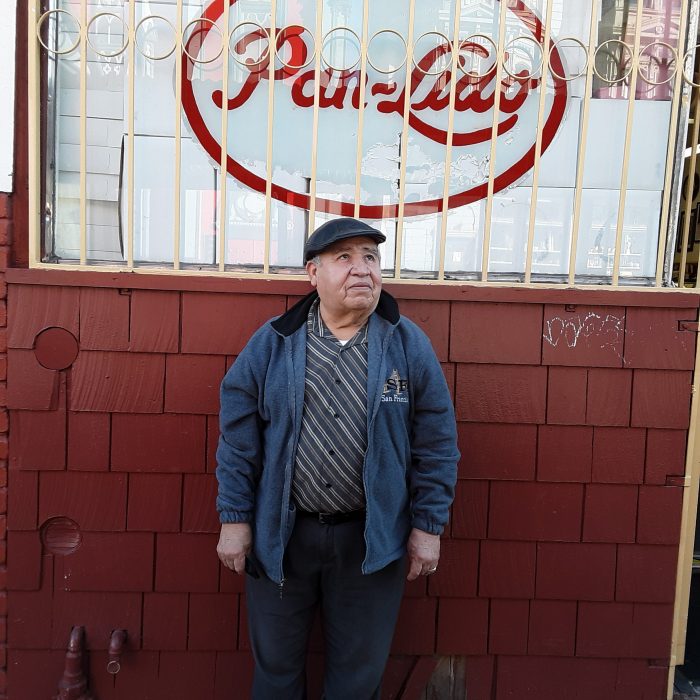
“I am analyzing my life now, and I wish I could have my residency, more than anything. Maybe then I qualify for senior housing,” Montes said.
Essentially, he lives on nearly nothing. “Some months I’ve looked for miracles, for the rent.”
What Montes does have, in spades, is a quiet dignity and positive outlook. What he calls: Positivisimo.
He dresses impeccably and elegantly in sweater vests, neatly pressed trousers and snappy berets. He smells of old spice. His smile is luminous. He waddles a bit, his gait slightly off-kilter, and he has the sweet sad eyes of Charlie Chaplin.
Surviving Covid
Montes said he has a lot to be grateful for, starting with surviving COVID-19. He got it in the early stages of the pandemic and spent two weeks at San Francisco General Hospital. “Mi doctor, Doctor Villa, told me, ‘Jose you are a real strong guy, you have excellent health and you are lucky, too, you came in, on time.’
He suffered no after-effects and has resumed his life. But in a recent conversation, he lamented how different the city seems to him since COVID.
“San Francisco has changed, I can tell you; The Pandemia has changed it. Everyone is walking around preoccupied, worried, desesperado, suspicious of each other. It’s a huge change; I only hope it’s temporary.”
He sighed as he surveyed a passing MUNI bus. “In the bus now, no one wants to sit next to you, no one wants to look at you. Always before you would say hello, or someone would ask where you are from, the start of a short, pleasant conversation. Now people are silent,” he said.
He believes the Spanish language media has a lot to answer for. “The Spanish language newscasts broadcast hysteria all the time, how bad COVID is, how bad the numbers are. They don’t broadcast any art news or culture or any of that like they used to. They just broadcast puro fear.”
A place of community
Before Covid, Montes had a routine – daily rounds and tasks that gave him a little supplemental income, but more importantly, gave him a place of community, cafecitos and warm rolls. Some people find their people in bars, others in bakeries.
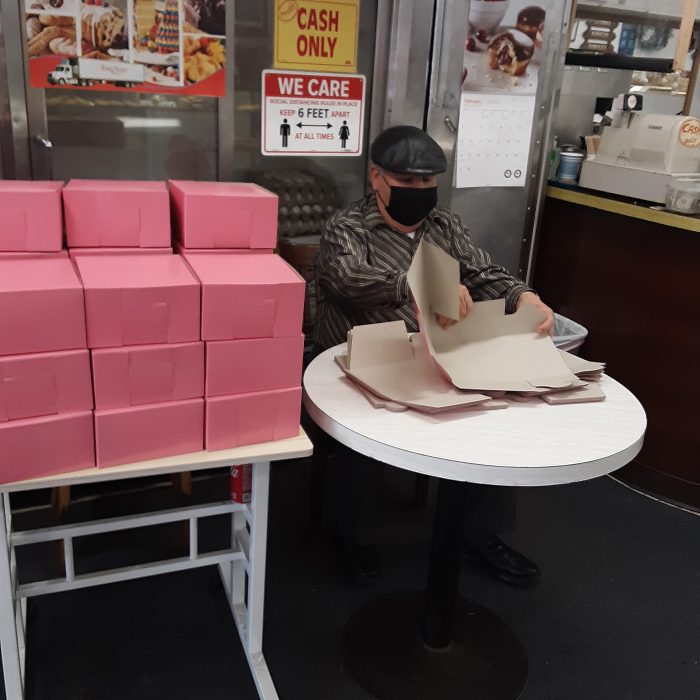
“Don Walter, the owner of Pan Lido, (an El Salvadorian bakery on 22nd Street) his father knew my father back in my hometown, Zacatecoluca. Our families, were friends, so he trusts me.“
In a mutually beneficial arrangement after his forced retirement, Montes was drafted by Walter for the occasional shift.
“So, my routine, what I would do, before the pandemia, I would go in and help out, attend to the customers. I wait on them, sell them pastelitos, (pastries with fig, plum, guava or pineapple fillings), viejitas (flaky puffs of cinnamon and spun sugar), pan frances (soft rolls).“
For a year he did not set foot in the bakery, due to COVID concerns, but he went and hung out near the entrance to greet his friends and customers. In the fall of 2021, he felt safe enough to work one or two morning hours inside.

Montes has a few sharp words for the young girls who serve the customers: “Mostly they look at their phones. They look down, don’t even notice when people walk in, but my priority is to help people feel welcome.
“I also carry the pastries from the oven to the display cases and put them out, and I recommend certain favorite delicacies as well,” he said. “Or I carry in boxes of supplies. I am attentive.”
His two sons, his daughter, and his eleven grandchildren live in Charlotte, N.C., and they send him a ticket to visit when they can. He paid “coyotes” to bring each of them here, one by one, as young adults, in the 1990s. They settled near their mom’s sister, as life was so much more affordable there. Montes spent last May and part of June in Charlotte, his first time seeing them in six years. But he could never live there, he said.
Living in a garage
“The kids told me, ‘Papa, come here, come and stay,’ but I sincerely do not want to live there. The heat kills me. It was more than a 105 degrees. In May! You are a prisoner of the heat in the summer, and in the winter, you shiver from the icy cold. Here, in San Francisco, I can walk out the door anytime to calm weather. I can do what I want.”
Montes lives in a converted garage in Daly City, where the landlord stores tires from his car repair business. He moved there after his bout with COVID. When he came home from the hospital to his rented room, he found that some cash he’d kept hidden had been stolen.
“I have always lived in small rooms in the area of the Mission. For 10 years, I lived off of Silver Avenue, very convenient, but during the Pandemia, my landlord moved a stranger in, to share with me, and I felt unsafe.”
Wasn’t he angry? Did he press charges? “No, but he is in prison now, charged with other crimes of robo,” he said.
It took a long time to find another affordable place, and it’s not ideal, but it’s just across the border from his beloved Mission District MUNI lines.
Yearnings for home
“My new place is $500, at least I can afford it. I have hot water and heat and I can go upstairs and use the kitchen to heat a cup of soup. Mostly I am out all day, anyway, walking and visiting my friends.”
Many of them are compatriots from El Salvador or small business owners along the Mission Street corridor. “They tell me how bad business is, that it’s gone down, with only hope that it gets better. We all agree the most important thing is for this pandemic to pass.”
He makes do with these visits, but it’s not the same as before Covid, he said.
“I am used to living alone, but I miss my long chats, my cafecitos without masks, and talking about my memories. Our memories. There are so many of us who left El Salvador.”
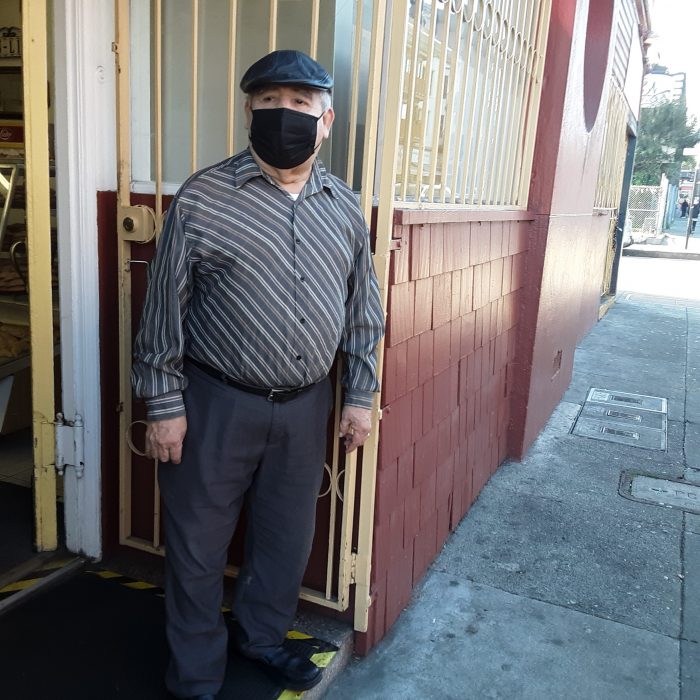
He pauses at the entrance to another favorite bakery, Rico Pan Salvadoreno, on Mission Street near Richland, as he steps in to greet a few friends shopping there: “Claro, I long for my country, I long for El Salvador. It’s nice here, it’s very nice, but I have such yearnings for home. In this time of the virus, I feel those longings pulling me.”


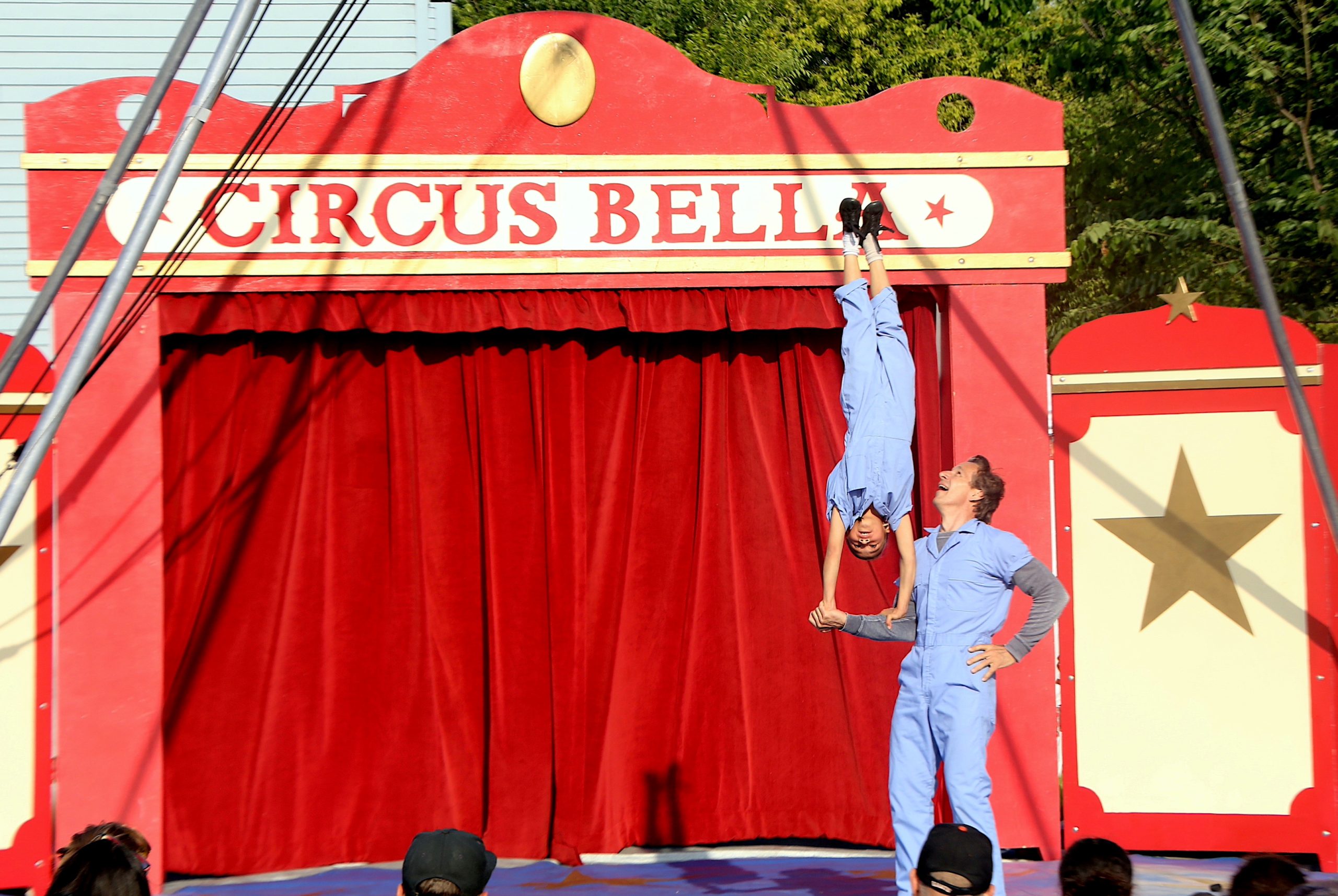
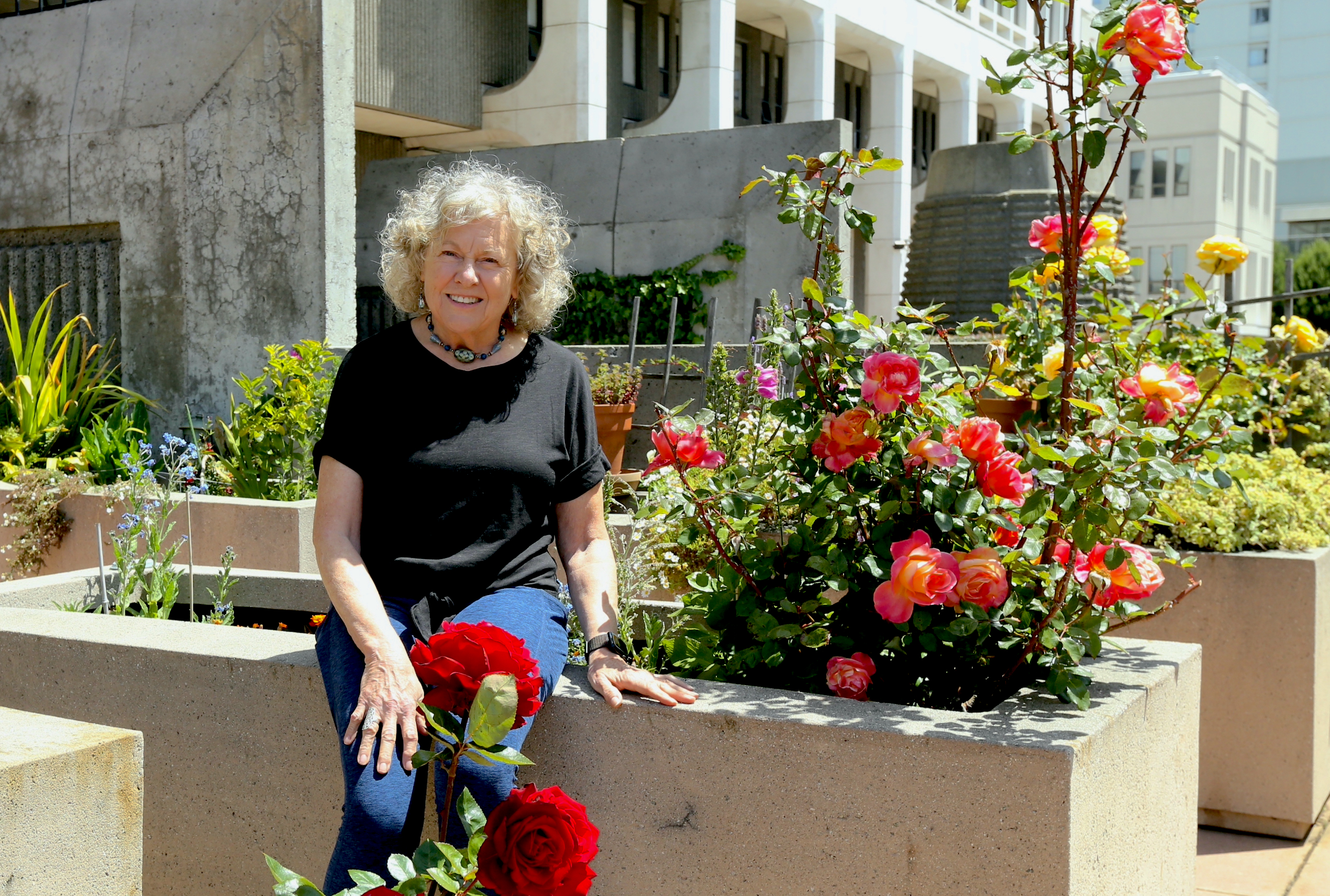
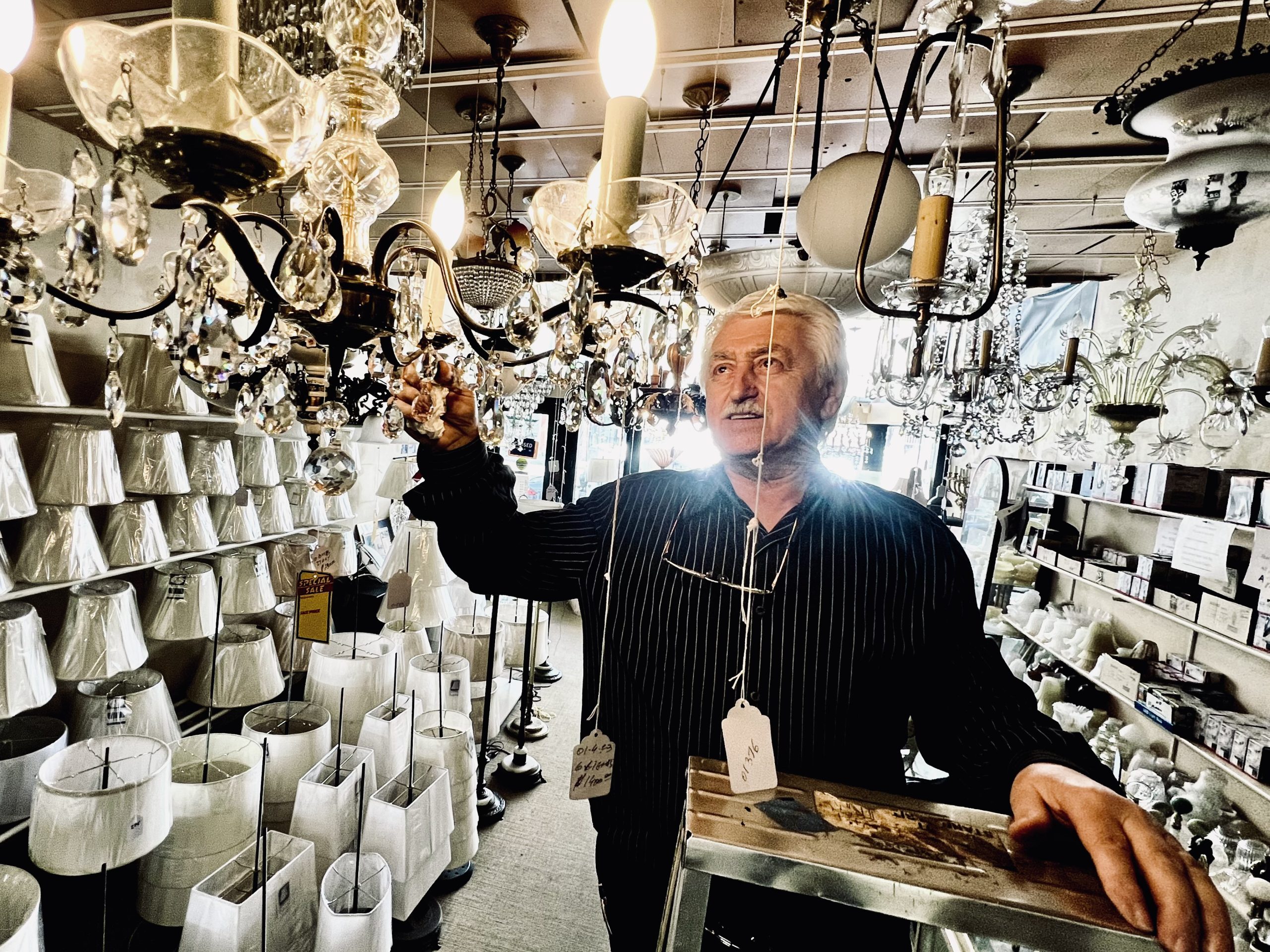

G DeCarl
Thank you for this moving profile of Mr. Montes!
c schmidt
Meeting Mr. Montes here reminds me to smile and say hello to our neighbors who we see in our neighborhoods, sitting on the benches, or working in low-paying jobs. SF is a special place to live and a global tourist destination. This profile of this sweet, wonderful man is a call to speak out for social and economic equity for all like him who are being pushed out by greed and indifference.
Jennie B.
I loved this profile of Mr. Montes! The description of his eyes was very so evocative- sad, like Charlie Chaplain. I'm very inspired by Mr. Montes' ability to maintain his Positivisimo, despite the fact that he has sadly not received residency after all these years. Well done, and very moving!
David Goddy
What a wonderful, touching profile. I felt as if I was sitting with him, hearing him tell his story. It's a shame that due to our country's mistreatment of immigrants that he has so little to get by on.